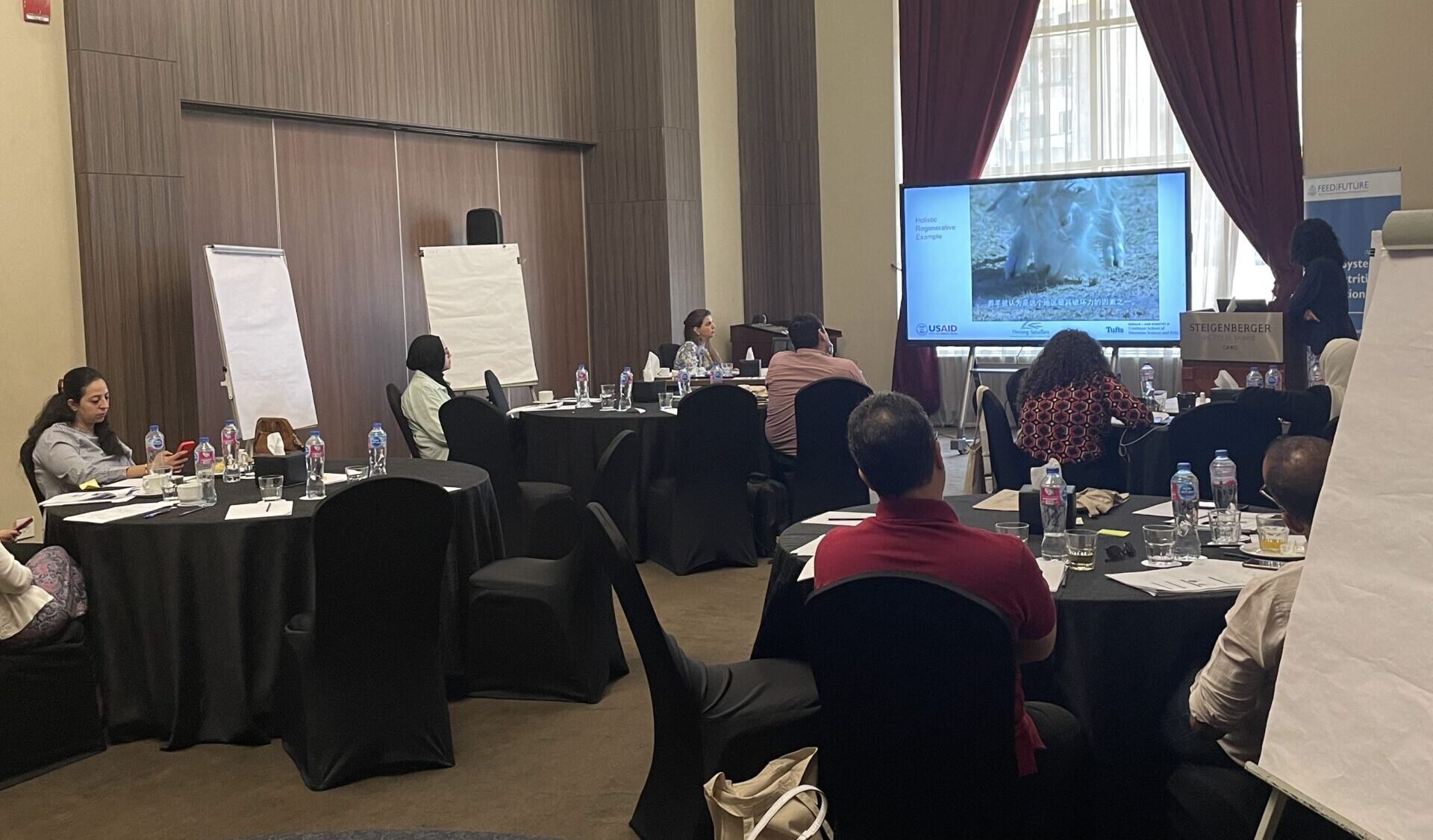
- This event has passed.
Introduction to Circular Food Economy Workshop
June 18, 2023 @ 8:00 am - June 20, 2023 @ 5:00 pm

The three-day workshop organized by the Feed the Future Food Systems for Nutrition Innovation Lab and conducted by Thriving Solutions, was held from June 18-20 at the Steigenberger Hotel El Tahrir in Cairo, Egypt. The 3-day workshop (15 hours in total) included 40% theoretical and 60% interactive sessions with real-life case studies and examples. Over the span of three days, participants learned to distinguish between linear and circular business models and learned the importance of adopting a circular food system approach.
Introduction to the Workshop
Waste is a human-made byproduct that is not in sync with nature; all natural systems are innately circular. Our linear economic module based on the take-make-discard approach, has been increasingly polluting the planet and infringing on our planetary boundaries. Switching to a circular economy provides a path towards economic and social wellbeing, while protecting and regenerating nature.
To meet the food needs of a rising global population, (estimated to reach 10 billion in three decades), it is imperative that we take swift action to shift our food systems to circular and regenerative ones. This is critical, especially when we consider that agriculture is a primary contributor to the climate crisis, biodiversity predicament and unabated pollution. Circular regenerative approaches, aim to design out waste and pollution, keep products and materials in use to the furthest extent, and regenerate natural ecosystems. A circular food economy can support most of the Sustainable Development Goals 2030.
Workshop Goals
Participants will distinguish between linear and circular business models and appreciate the importance of adopting a circular food system approach, and its role in alleviating pressure on Earth’s systems.
Participants will:
- Recognize the differences between linear economy and circular economy.
- Describe the food system and recognize its inherent complexity.
- Explain the sustainability challenges associated with producing our food and what it means to live within our planetary boundaries.
- Analyze the three principles of circular economy and how they relate to the food system.
- Compare the different levels of the Food Loss and Waste Hierarchy, interpreting their advantages and challenges.
- Summarize the advantages and trade-offs of food packaging and the role of packaging innovation in designing out waste.
- Discuss the role food product design and sourcing of ingredients has in advancing circular food systems.
- Appraise the links between circular food systems and the Sustainable Development Goals 2030.
Event Photos
Please visit our flickr account here to view event photos!
